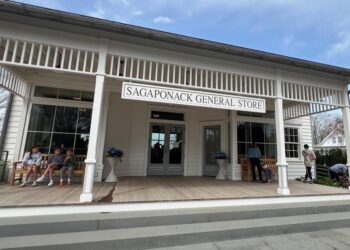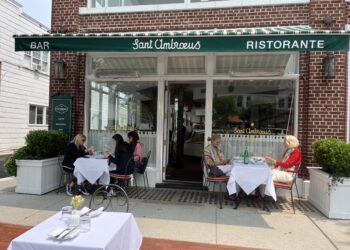There are many ways to be involved in your community, and among our citizenry there are those who care a great deal about what they eat, where it comes from, how it is produced and who is producing it.
Becoming a member of a Community Agriculture Farm (CSA) offers both farmers and consumers a mutually agreeable partnership whereby members purchase shares of a particular farm’s harvest, thus receiving a regular allotment of food throughout that farm’s growing season.
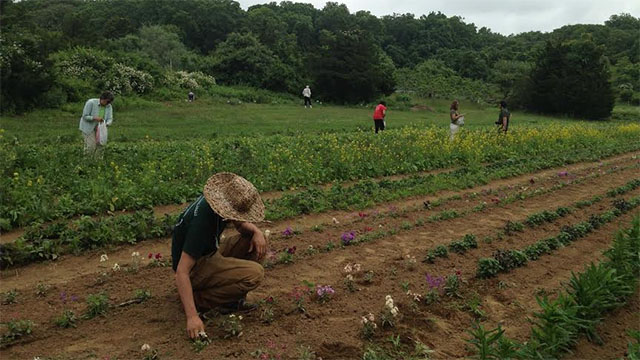 |
|
Chaskey says there are about a dozen or so local farms on the South and North Forks offering CSAs. (Photo: Peconic Land Trust) |
You could rely solely on the experience and knowledge of farmers or agriculturalists who grow and harvest the produce for members, or you can participate hands-on as some farms do allow members to take part in the planting and harvesting of their own produce. This indeed is a fresh approach to fresh produce!
Long Island is home to a number of CSA farms, however, on the East End, Quail Hill Farm in Amagansett has the distinct honor of being one of the first CSA’s established in the United States. Owned by the Peconic Land Trust, Quail Hill Farm covers 35 acres and supplies a multitude of residents with fresh quality produce.
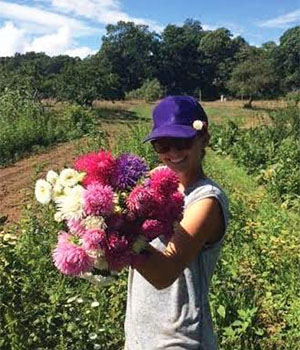 |
|
Long Island is home to a number of CSA farms. (Photo: Peconic Land Trust) |
Additionally, Quail Hill offers an apprentice program that teaches with a hands-on approach that instructs individuals who want to learn more about farming and gardening through educational programs. So whether an individual, family or group, Quail Hill’s educational programs lets you get your hands dirty and your tummy full with fresh produce and the satisfaction that you knew it, grew it, and chewed it.
Scott Chaskey, Director, Peconic Land Trust’s Quail Hill Farm, graciously answered a few questions for any potential farmers in the dell:
When was Quail Hill Farm established as a CSA, and how large is the membership?
SC: Quail Hill Farm’s CSA was established in 1990, and today the farm supports up to 250 families during our summer share season.
What is the benefit to the farmers with a CSA?
SC: Joining a CSA is a great way to support your local farmers as you are providing the farm with revenue at the start of the farm season – sharing in the bounty of the farm and its future.
How many Hamptons farm stands would you estimate participate in a CSA?
SC: There are probably a dozen or so local farms on the South and North Forks offering CSAs. The opportunity has grown in the last few years, making it easier for the community to find a CSA right in their neighborhood. It’s a great way to financially support your local farmer, and to get to know them and how they care for the land and the food they grow.
Are there any additional CSA farms planned in the Hamptons?
SC: I would imagine yes. It’s a great model for farmers to apply to their own operations; and more and more the community is excited and participating in these programs to the benefit of all!
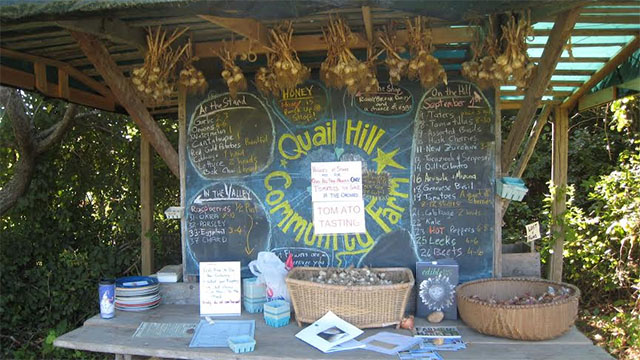 |
|
Quail Hill Farm in Amagansett has the distinct honor of being one of the first CSA’s established in the United States. (Photo: Peconic Land Trust) |
Obviously not all farms on the East End participate in a CSA, so what does an existing farm do to become a CSA?
SC: A farmer should ask of those who have experience – there are multiple models. It’s really a business plan decision for a farmer to decide how they want to distribute the products they grow. Some choose only wholesale distribution – to stores, markets, restaurants. Others will have their own retail through a farm stand or participate in a farmers market, while others may just want a CSA – or any combination.
What would you consider to be the top three benefits to both farmers and consumers who participate in a CSA?
SC: To enter into a relationship of mutual trust (farmer and consumer), and to ensure that our rich farming tradition continues, and that prime soils are used for farming!
Quail Hill Farm is located at 660 County Road 45 in Amagansett. For more information on Quail Hill Farm and/or the Peconic Land Trust, go to www.peconiclandtrust.org.


